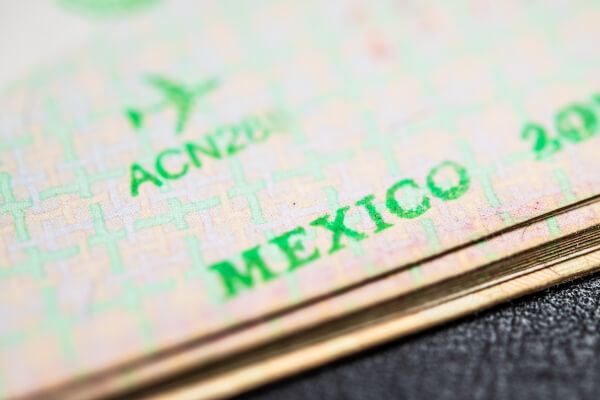Hiring Independent Contractors in Brazil: Legal Guide for 2026
Learn how to hire independent contractors in Brazil. Understand tax rules, compliance, contracts, and how to avoid misclassification risks.

According to the French National Institute for Statistics and Economic Studies (INSEE), 16,800 firms were under foreign ownership in France in 2019. The United States was the leading source of foreign-owned jobs.¹
As a vibrant, modern country with a developed economy, many expats choose France as the place to launch their own business. If you're considering moving to France to work for yourself, then you need to know a bit about the processes and legalities of creating a business there.
This guide will cover the basics to starting a new enterprise in France.
Choosing a company structure and setting up your business legally can be complex, especially for the more sophisticated business structures. Taking legal advice and getting the support of an accountant early on is advisable, and in the case of some business structures, absolutely necessary.
The amount you need to invest varies by business type. Sole proprietors don’t need to invest any money to register their activities. A SARL can be set up with as little as €1, while you'll need €37,000 to start a SA company.²
If you're registering a company then you should check that the name you've chosen isn't already taken. You can do a free simple check, or pay for a more detailed search. If you want to have exclusive use of the name you choose, you can register it at a cost (although this isn't legally required in France as it is in some other jurisdictions).
The most important initial decision you'll need to make is which type of corporate structure will suit your needs in France. This matters because different business types are treated differently in law and by the tax authorities.
There are many different types of corporate entities used in France - here are some of the most common:
Sole proprietorship (entreprise individuelle)
Commercial partnership (société en nom collectif - SNC)
Limited liability company (société à responsabilité limitée - SARL)
French joint stock company (société anonyme - SA)
Simplified stock corporation (société par actions simplifiée - SAS)
The sole proprietorship model is popular for those looking to work predominantly alone, such as freelancers or individual tradesmen. In this case your tax affairs and those of the company aren't separate, meaning you have liability for any debts accrued in the course of your work.
Alternatively, it's possible to set up an EIRL - Entreprise individuelle à responsabilité limitée - in which you work as a sole trader but with some limitations on your liabilities.
A partnership, as elsewhere in the world, is intended for businesspeople to work in collaboration. The SARL format is similar to the LLC format used in the USA. An SARL must be founded by 2 to 50 shareholders, and have a director, who is often salaried.
A joint stock company, known as a SA, is quite difficult to start and has a heavy administrative burden. However, in this company type shares can be traded on the stock exchange, similar to a publicly limited company elsewhere. The risk to investors is limited to the amount initially paid in, which must be at least €37,000.²
The simplified stock corporation (SAS) is a stripped down version of the SA company structure. In this case you need a minimum of two shareholders to set up (compared with the SA requirement of 7), and opening capital of €23,000. However, shares can't be publicly traded.³
Exactly how you go about opening your business depends on the type of structure you select.
Setting up business as a sole proprietor in France is fairly easy. You need to register your activities (usually with the local chamber of commerce) but you don't need to invest any capital, or produce accounts.
The exact process varies depending on the type of business you're going to operate, as some other licensing requirements might apply.
To register a SARL you'll initially need the following:
Articles of incorporation (which must be signed in the month prior to registering your business)
Proof of business address
Notice of company formation, published online in a legal gazette
These documents are taken, along with the named director’s proof of ID to the local ‘centre de formalités des entreprises’ (CFE). You may need to provide further documentation depending on the specific application, but once it's accepted you'll be given a receipt which allows you to make preparations for your business (but not start trading).
The receipt can be used to allow you to set up a business bank account, for example. The CFE will pass your application details on to all the relevant authorities, and once the registration is complete you'll get a certificate which allows you to actually start trading.
Registering a SARL comes with a registration cost, which depends on the nature of the business. You can expect it to be in the range of €300 for the registration process, with a minimum initial opening investment of only €1.
| If you need some help finding the right name for your business try our useful Business Name Generator tool. |
|---|
If you've registered a SARL company then the CFE will pass your details onto the necessary authorities as part of your registration. They'll inform the tax authorities, social security and labour inspection agencies, as well as the national statistics bureau and any regulatory authorities required.
You'll also need to pay tax on your earnings. This is fairly complex and you're advised to find a professional accountant to help you with this. Basically, if you're self employed, you're taxed on your earnings as though you and your business are one entity.
You may also be liable for a professional tax. If you have a business this is usually dealt with as a separate entity and charged a company tax, professional tax, and in the case of businesses employing others, taxes relating to this too.
Wise Business can help you save big time on international payments.
Wise is not a bank, but a Money Services Business (MSB) provider and a smart alternative to banks. The Wise Business account is designed with international business in mind, and makes it easy to send, hold, and manage business funds in currencies.
Signing up to Wise Business allows access to BatchTransfer which you can use to pay up to 1000 invoices in one go. This is perfect for small businesses that are managing a global team, saving a ton of time and hassle when making payments.
Some key features of Wise Business include:
Mid-market rate: Get the mid-market exchange rate with no hidden fees on international transfers
Global Account: Send money to countries and hold multiple currencies, all in one place. You can also get major currency account details for a one-off fee to receive overseas payments like a local
Access to BatchTransfer: Pay up to 1000 invoices in one click. Save time, money, and stress when you make 1000 payments in one click with BatchTransfer payments. Access to BatchTransfer is free with a Wise Business account
Auto-conversions: Don't like the current currency exchange rate? Set your desired rate, and Wise sends the transfer the moment the rate is met
Free invoicing tool: Generate and send professional invoices
No minimum balance requirements or monthly fees: US-based businesses can open an account for free. Learn more about fees here
Once you've decided to start your business in France, you should start to build your support network there.
If you’re registering a SARL at your local CFE, they'll be able to advise you about local networking groups and support you might benefit from. Another option is to look at the support and funding offered through the European Union. The Enterprise Europe Network is a good place to start.
There are also grants, funds and competitions open through the EU, which might apply to your business. More can be found on the business pages of the EU website.
If you’re an entrepreneur then there are various associations who can help, such as BGE or La French Tech. Alternatively, if you're running a more traditional business, look at local chambers of commerce. Here you'll find others in your industry who can offer sage advice, as well as a ready made group of like minded people.
Depending on your nationality, you might also find associations dedicated to help build bridges between your home country and France. The Franco-British Chamber of Commerce is an example of this.
Once you’re in France and ready to get going, look for local networking events on sites such as Meetup, Eventful and Eventbrite. Here you can meet a wide range of new people and build your customer and business contact book.
With some planning, and a little help from your new network and friends, your business will get off to a flying start.
| 💡 While you’re looking to fund your new venture from abroad at the least possible cost, consider using Wise Business. Not only do they provide mid-market exchange rates, but since your money is received and sent locally in both your home country and in France, you won’t need to worry about international transfer fees. |
|---|
All sources checked December 21, 2022
*Please see terms of use and product availability for your region or visit Wise fees and pricing for the most up to date pricing and fee information.
This publication is provided for general information purposes and does not constitute legal, tax or other professional advice from Wise Payments Limited or its subsidiaries and its affiliates, and it is not intended as a substitute for obtaining advice from a financial advisor or any other professional.
We make no representations, warranties or guarantees, whether expressed or implied, that the content in the publication is accurate, complete or up to date.

Learn how to hire independent contractors in Brazil. Understand tax rules, compliance, contracts, and how to avoid misclassification risks.

Learn how to hire and pay independent contractors in Mexico. This article also includes an FAQ and best practices about working with contractors in Mexico.

Learn how to navigate the overseas worker recruitment. Discover legal requirements, sourcing strategies, visa compliance, and tips for international hiring.

Paying overseas vendors is common, but the hidden costs of B2B cross-border payments aren’t. Learn how to simplify international business payments today.

B2B payment processing doesn’t have to be hard. Learn how growing businesses can simplify cross-border transactions, streamline invoicing and get paid faster.

Discover strategies to enhance B2B payment security, reduce fraud risk, and protect cash flow using secure digital payment methods and automated workflows.